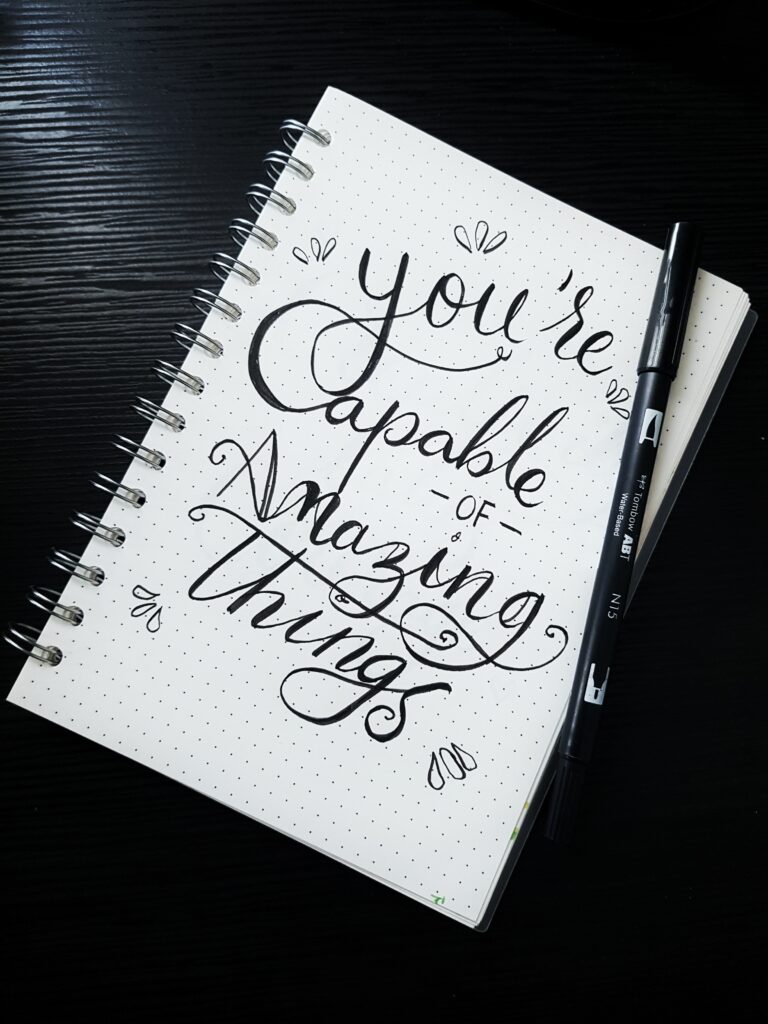
Building Self-Compassion
Table of Contents
In my previous post I talked about the importance of self-compassion for your mental health. I also touched on why you may struggle with self-compassion. We are very tough on ourselves. Many of us tend to set unrealistic high expectations and negative self-talk ensues when we fall short. You can read more about that here.
Building self-compassion is necessary in your healing process regardless of if you’re healing from trauma, depression, anxiety, coping with a disorder, or grief. You need self-compassion.
Thinking errors that block self-compassion.

One type of thinking error is “should have”, “would have”, “could have” thinking. “I should have seen it coming.” “I could have prevented it from happening, so it is my fault.” “I would have left sooner in the relationship.” This type of thinking error leads to self-gaslighting and self-shaming.
Another type of thinking error that prevents building self-compassion is personalization. Personalization means blaming yourself for what happened. You assume all responsibility even if the situation was completely out of your control. I talked more about this here.
Mind reading is another thinking error that can block self-compassion. Mind reading is when you assume what other people are thinking. You may assume that people are judging you for the way you look or how you act. You may assume that people would say you were to blame for what happened to you in your past. You build up an imaginary team of people who are against you. This prevents self-compassion because you tell yourself everyone thinks negatively about you, and you start to believe it.
Filtering is a thinking error where you filter out all the positive and only focus on the negative. It is easy to see how this can prevent from building self-compassion because you are solely focused on the negatives about yourself and a situation. There is no space for positives.
Click here if you want to read more about other kinds of thinking errors.
Tools for building self-compassion.
One way to work on building self-compassion is to challenge your thinking errors.

- Grab a journal and write out all the thinking errors you can identify. Keep the journal with you throughout your day so you can add to the list as they come up.
- You can then start by fact checking your “should” thinking errors and your personalization thinking errors. It may be helpful to have a 3rd party help with this whether that be a friend or a therapist as sometimes thinking errors completely distort your thinking. Look at the logical facts of the situation and ask yourself if the conclusions you are drawing about yourself are logical based on the facts. If you find hindsight bias in your thinking you must challenge that with the logic that you did not know then what you know now. Circle the truth when you find it.
- For mind-reading thinking errors it is best to talk with others to hear their thoughts and perspectives. There is no room for assumptions when we have open conversations with others and get their insight.
- If you struggle with filtering thinking errors, start each day with writing out 5 positives about yourself and 5 positives about the world. Any time you find yourself looking at the negatives during the day, stop and identify 5 more positives. We come to believe what we tell ourselves. So, if you start focusing on the positives, you will come to believe them.

Another tool for building self-compassion is to find a picture of yourself as a child and tape that picture to your bathroom mirror. Every time you look at that picture ask yourself “would say that to the little kid in the picture?” If the answer is no, then you need to challenge that self-talk and reframe it.
You can also work on building self-compassion by talking to yourself as if you were talking to a friend or family member. If someone close to you came and told you about an abusive relationship that they were in, would you sit there and tell them “you are stupid and it is all their fault.” Or “how could you be so dumb to stay in that relationship any longer?” Hopefully the answer is no. If you would not say it to a friend or family member, then don’t say it to yourself.
